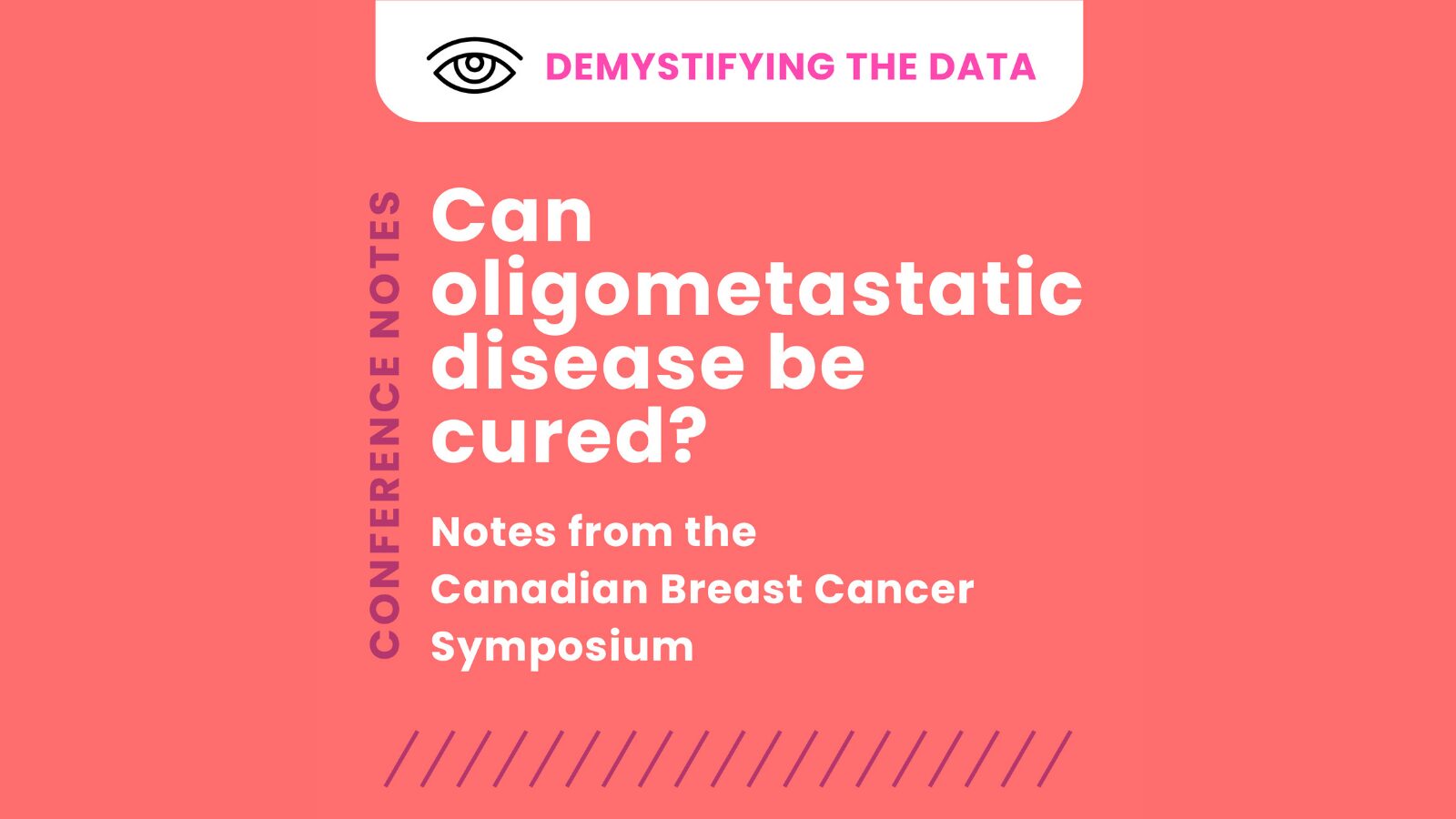Can oligometastatic disease be cured?
3 MINS to read

Notes from the Canadian Breast Cancer Symposium
I realize that many people are not familiar with the term oligometastasis. Oligometastasis is a type of metastasis in which cancer cells from the primary tumor travel through the body and form a small number (< 5) of new metastatic tumors in one or two other parts of the body. It is considered an early stage of metastatic disease.
I was fortunate to be one of the patients in attendance at the Canadian Breast Cancer Symposium on June 18, 2021. There was a session specific to oligometastasis at the symposium with presentations from a medical oncologist (Dr. Cristiano Ferrario), radiation oncologist (Dr. David Palma), and surgical oncologist (Dr. Mark Basik).
Early-stage breast cancer is treated aggressively as the stage at diagnosis increases, but there is an invisible line that patients cross once diagnosed with metastatic disease. They are no longer treated aggressively, and treatment outcomes have a palliative rather than curative intent. According to the presentations, patients with oligometastases could benefit from a curative treatment approach, but the current staging system does not capture this stage of disease.
It can be difficult for doctors to predict which early metastatic patients to treat aggressively and which type of treatments to use. Based on research studies, there are some indicators that can help doctors identify which patients may have better long-term outcomes according to their subtype, site of metastasis, number of lesions, etc.
Treating oligometastasic disease with curative intent has not been embraced by everyone in the medical community because there is a lack of evidence about the effectiveness of treating oligometastases. However, there are some Phase II clinical trials available with promising results and some Phase III clinical trials underway. These clinical trials are assessing whether local treatments such as stereotactic ablative radiotherapy and/or resection in combination with systemic therapy is more effective than systemic therapy alone. I am very excited to see these results and how the treatment approach for patients with oligomets will change in a few years.
Although this term was never discussed with me when I was initially diagnosed with metastatic breast cancer, I consider myself oligometastatic. I only dealt with one metastatic lesion at a time and in only one organ at a time. The treatment for each of my tumours was a combination of chemotherapy, surgery, and/or radiation. I was very fortunate to have a medical team that treated me aggressively with curative intent and that my tumours were able to be surgically removed each time. I was able to achieve a “No Evidence of Disease” status after each of my tumours was treated. I have had NED status since 2013 after completing treatment for my lung mets. Can I consider myself cured? I am not sure, but I’ll continue to enjoy my NED status for as long as I can. — Nathalie Baudais, MBC Advisory Board Co-Chair